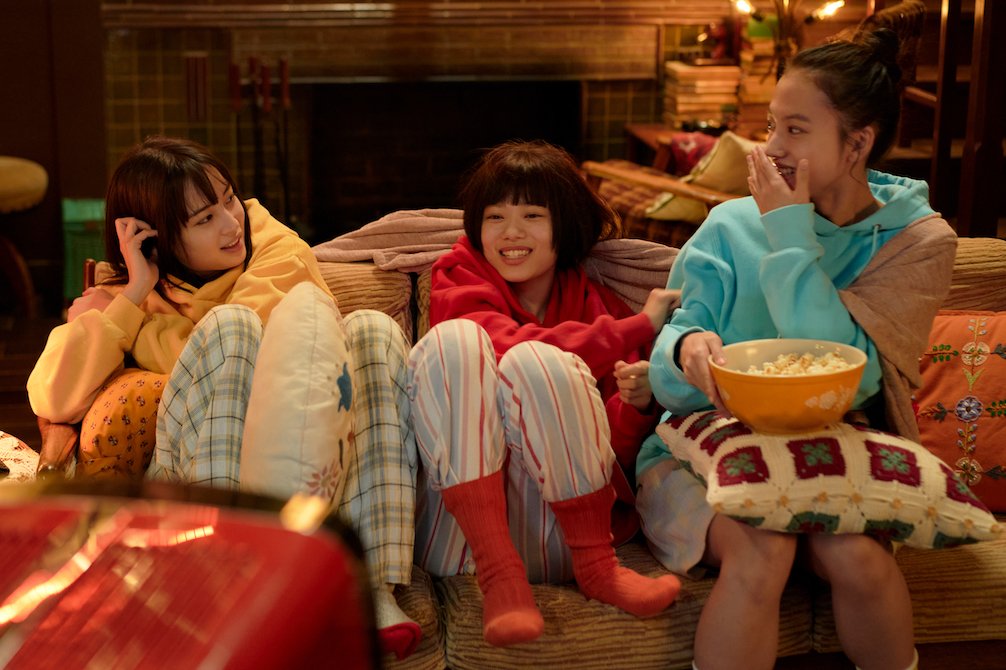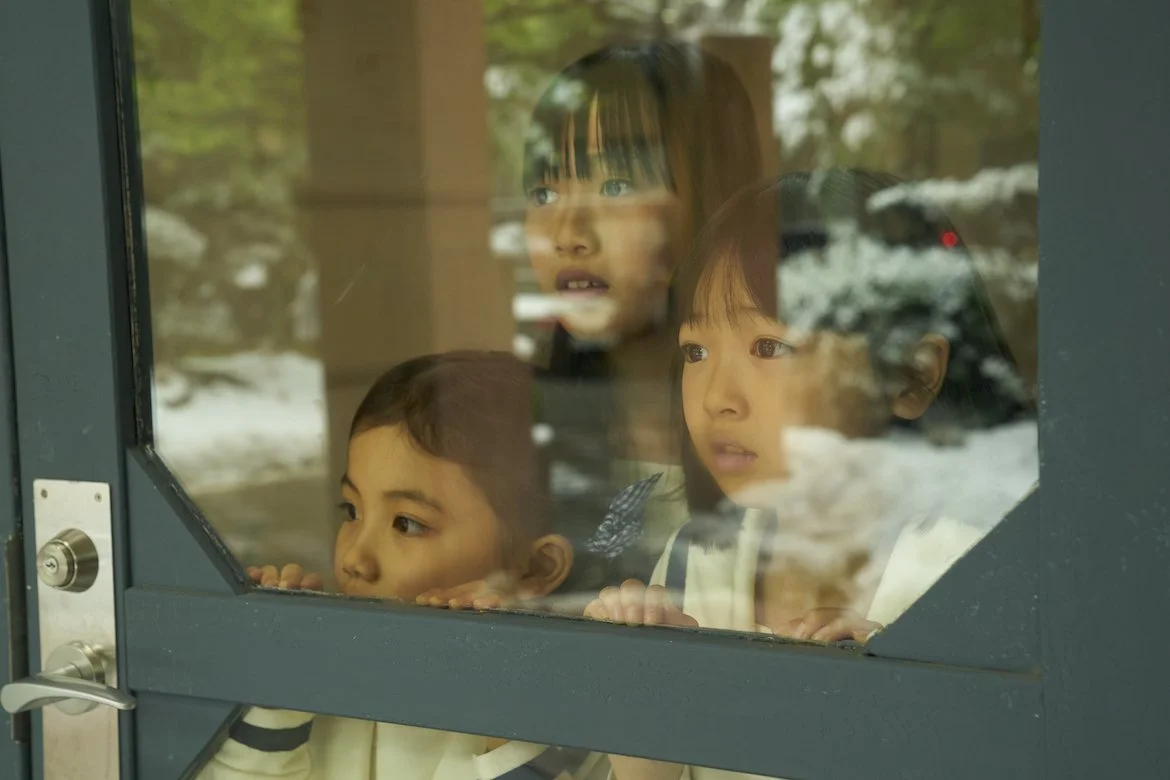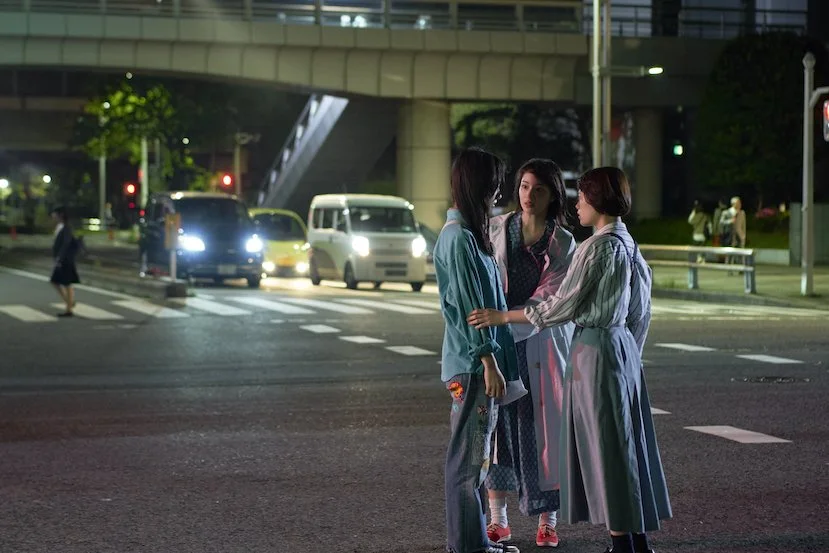More Like Untenable
A holy trinity of young talent almost makes the latest by Nobuhiro Doi watchable. Almost.
Unreachable
Director: Nobuhiro Doi • Writer: Yuji Sakamoto
Starring: Suzu Hirose, Hana Sugisaki, Kaya Kiyohara, Ryusei Yokohama
Japan • 2hrs 6mins
Opens Hong Kong May 22 • IIA
Grade: C+
Nobuhiro Doi’s Unreachable | 片思い世界 starts with three little girls going about their day in elementary school. One of them, Misaki, is something of an artist and she has a book full of sketches for her grade school boyfriend, who she’s totally in love with. She’s on the look-out for him when she’s interrupted by some kind of ruckus in the hall, which also leads her and two other girls, Misaki’s choirmates Sakura and Yuka, to get locked in a classroom. Something truly awful is going on, though we never see what it is, and if you can’t figure out what it might be in the 2020s, even in Japan, you need to read the news more often.
Twelve years later, the three girls are now young women, and for some reason are sharing a sprawling, traditional Japanese house in the Tokyo suburbs. Misaki (Suzu Hirose, Kyrie, Our Little Sister) is an OL, Sakura (Kaya Kiyohara, 18×2 Beyond Youthful Days, Doi’s We Made a Beautiful Bouquet) works at an aquarium and Yuka (Hana Sugisaki, 52-Hertz Whales, Ten Years Japan) is still a student of some kind, I think. They float through life, barely noticed by anyone around them (uh oh) but seem largely fulfilled. Happy. But one day Yuka sees her florist mother driving the company van, which brings on all the feels, Misaki sees her now-grown old beau hunk Tenma (Ryusei Yokohama, Wandering) on a bus, which brings on all the feels, and Sakura hears about the perpetrator of a heinous crime (Kuu Izima) that impacted the trio getting paroled, which – say it with me – brings on all the feels.
Unreachable reunites Doi with the current king of weepie screenplays, Yuji Sakamoto (First Kiss, Hirokazu Kore-eda’s Monster) after the duo had a modest winner in Bouquet (which featured Kiyohara). That film managed an unusual balance between bland, youthful romance – with young adults in their early-20s for a blessed change – and the reality of how hard it can be to make a romance work. Whatever momentary lapse of reason overtook them on that film has long since passed, as they’ve snapped back to the same tired unrequited love bullshit to use as the inciting incident that tells us ** SPOILERS ** the girls are, in fact, dead. This is only partially surprising for anyone who 1) has seen a movie, ever, and 2) paid attention to the action in the film’s opening 20 minutes. It’s a first-act reveal, and more than being a nutty supernatural twist (it’s really not that bad), it sucks for using unrequited love – again – as the framework to hang the story on. Though seeing as that’s literally what the Japanese title means, I guess none of us should clutch our pearls. Evidently in Japan your grade school crush is forever, and Misaki encountering a still guilt-wracked, depressed Tenma is our gateway to a (thin) exploration of grief, regret, closure and moving on via a chance to sing in the school choir performance the girls never got. The big scene, no doubt, was intended to start the waterworks, but Doi and Sakamoto have done such a piss poor job of showing us who these women are and examining their motivations (they get a whole one each) it’s hard to care.
And all that is doubly irritating because Unreachable has all the parts to be a solid, introspective drama that blends fantasy and reality for its storytelling. The sky high concept is just goofy enough to work, because when you commit to building a world with its own internal logic we don’t question it. It just is, and we accept it; Sakamoto pulled it off in First Kiss, and you can see it in everything from Death Note to John Wick. The problem here is that Doi and Sakamoto don’t create a self-contained world that makes sense for itself, and so before long you’ll find yourself picking at little details that should be overlooked, like a scab that’s about to drop off your knee. Adding insult to injury, the lead trio of Hirose, Sugisaki and Kiyohara are among Japan’s fastest emerging and most engaging young actors and all do the best they can with the material, and the production standards are equally sky high. There are too many loose narrative threads, too much theoretical physics and particle accelerators (seriously), sluggish pacing – and not nearly enough of the Japanese folk-rock-Europop band Moonriders as street buskers. “Unreachable” is truth in advertising.



